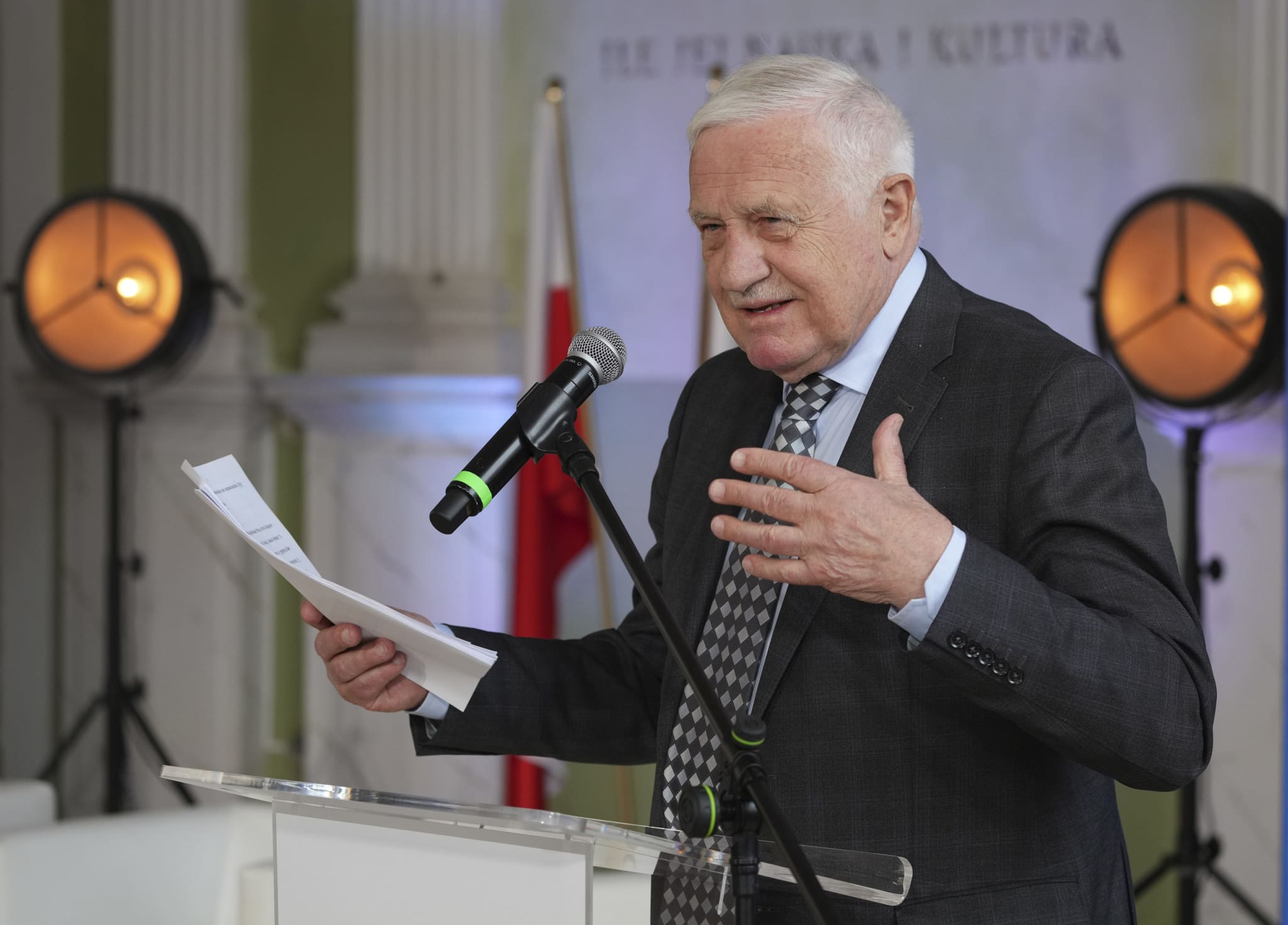Many conservatives outside of Czechia are critical of the country’s political situation, saying it lacks a real conservative option. Do you agree with this view?
Conservatives in the Czech Republic have only lost ground since I left office. I was considered the last one keeping that flame alive. And now we have a tragic situation in parliament. The party I founded 32 years ago changed totally, has no connection with conservatism whatsoever, and there is no one — no party or person or movement — which could be considered conservative. So, the conservative people have no representation in parliament these days; so it’s a tragic, tragic development.
So, given the circumstances, would you say that (former Prime Minister Andrej) Babiš would be an improvement over the current government if he were to run again, or do you think he is someone you simply could not support?
You know, this is a very sophisticated question, which can be explained in one sentence. Babiš has nothing in common with conservatism, absolutely nothing.
On the other hand, he was a little bit more pragmatic and more of a practical politician than what the current government offers.
So in this respect, people like me can have several similar positions and stances with people like Babiš vis-à-vis the current EU current progressivism, current U.S. government, the Ukraine War, and so on and global climate change, and migration. He has some positions, some similar stances, but I don’t believe that his internal way of thinking is like mine. I don’t think he’s a true conservative, really not. But in the current distribution of power in the Czech Republic, there are situations, in which I would be on his side, not on the side of the government.
Do you see any politician that you can get behind then? Or do you see no political alternatives at this time?
There are many individuals, but there is no real political movement which would represent conservative views. So it will involve a “long march through the institutions,” as Antonio Gramsci described 80 years ago, but from the other side.
[pp id=29069]
So, to expect that there can be a change in the Czech Republic these days is really not the case. Everyone tries to be optimistic and says to me that communism was definitely overcome. And I always answer, it’s a question of the time span, the dimension of time. I have always asked them, do you think that situation in the country is the situation like in 1987, two years before the fall of communism, or is it 1975 or ’65 or ’53?
I’m afraid that we are in 1953.
So, we have to make a slow march through the institutions. There is no chance to change anything tomorrow.
So, do conservatives have any voice in the press?
There are many, many interesting views out there, and I have three, four, five pieces published a week in journals and the front page. We are not totally blocked. The official, state-owned television would never invite me, but otherwise, I am on the front pages, so there are some voices.
Slovakia is overwhelmingly against their country sending weapons to Ukraine? What is the stance of the Czech population?
I think this is not a debate point in the Czech Republic. Weapon deliveries have never been openly discussed, and it’s just not honestly discussed. Our minister of defense (Jana Černochová) is a fundamental fighter for more war in Ukraine, but everyone is laughing at their position.
The real issue is that we in the Czech Republic are punished by our experience because there is still the way of thinking about the 1968 invasion by the Warsaw Pact, which means the Soviet Union and Czechoslovakia. And to my great regret, to my great regret — well, not just a regret, I’m angry — is that some Czechs, even reasonable Czechs, are now fighting the 1968 war. Now, they think we didn’t fight at that moment, now we can fight this time. Again, even without our direct involvement.
[pp id=33800]
Nevertheless, this is the mentality which I’m trying to fight and disagree with this, but I must admit that this is still the important feeling in the Czech Republic: Now, we can compensate for our lack of any activity in August ’68, which is unique. Poland was fighting, Hungary was fighting in ’56’
You are at CPAC Hungary and have long been an ally of Hungary’s PM Viktor Orbán. Are you working to improve Czech-Hungarian relations or do you think that with this current government, it’s a lost cause until a new government comes into power?
Well, I’m definitely not representing the (Czech) government. This is my starting point for answering your question.
What gesture could Hungarians do to improve Czech-Hungarian relations? Looking for a funny and simple answer: My first answer is that there is no gesture of any kind. And then I’ll say, well, the only gesture would be to announce that Viktor Orbán is resigning and that would be the best message for the current Czech government.
(Editor’s note: Klaus laughs at this point during the interview).
Ok, so that’s somewhat of an overstatement, but I certainly hope you understand I want to show how bad relations are between the two governments.
[pp id=25008]
Do you feel the conservative situation is developing in a more positive direction in America?
On the one hand, America has very strong roots with conservatism, and America has millions of activist supporters of conservatism. The strengths of America are quite clear in this regard., On the other hand, I think that even in America, there is a problem that part of conservatism moves in the way of looking at the left, on many, many topics, and adopting a progressive way of thinking.
Many American conservatives aren’t bold enough to reject the many crazy ideas of progressives these days. So, this is my problem with American conservatives. In Central Europe, we have our communist experience. We see it in a very different way. We would prefer to have a stronger, clearer American position, which is missing in my perspective.






